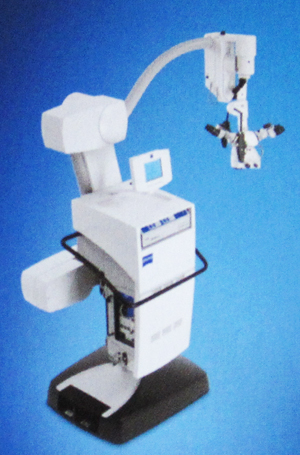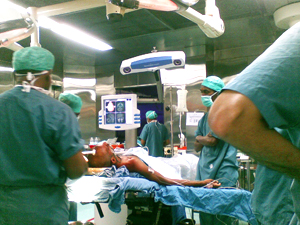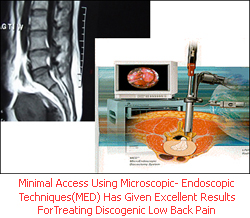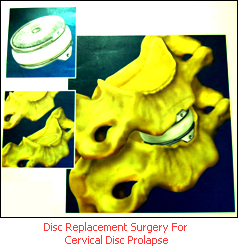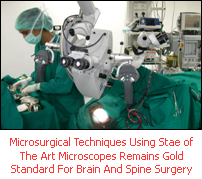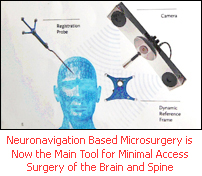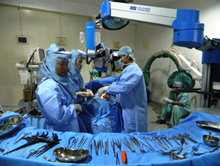For Consultation:
Neurosurgery
Definition: Neurosurgery is the surgical specialty that deals with the nervous system, including the brain and spinal cord. Surgery may be necessary due to a birth defect, traumatic injury, cancer or other reasons.
Subspecialties include pediatric neurosurgery and oncology, specializing in brain tumors and other tumors of the nervous system.
Neurosurgery is the surgical discipline focused on treating those central, peripheral nervous system and spinal column diseases amenable to mechanical intervention. "Brain surgery" is commonly used, much like rocket science, to refer to a task requiring significant knowledge and skill.
The surgical specialty involved in the treatment of disorders of the brain, spinal cord, and peripheral nerves. It provides surgical repair and treatment of nervous system disorders. Conditions treated include brain and spinal cord tumors, aneurysms (bulge at a weak point of an artery), bleeding inside the skull, some birth defects like hydrocephalus and spina befida, epilepsy and nerve damage due to injury.
Modern neurosurgery has benefited greatly from advances in computer assisted imaging (computed tomography (CT), magnetic resonance imaging (MRI), positron emisson tomography (PET), magnetoencephalography (MEG)) and the development of stereotactic surgery. Some neurosurgical procedures even involve the use of MRI and functional MRI intraoperatively. As one of the most research-oriented specialties of medicine, the scope of neurosurgery has expanded as new diagnostic techniques allow surgeons to perform more complicated surgeries. Some of the most recent and innovative advances have been radiosurgery using the gamma knife for tumor treatment and endovascular surgery for the clipping of aneurysms.
Neurosurgical conditions include primarily brain, spinal cord, vertebral column and peripheral nerve disorders.Conditions treated by neurosurgeons include:
• Head trauma (brain hemorrhages
• Spinal disc herniation
• Spinal stenosis
• Hydrocephalus
• Spinal cord trauma
• Brain tumors
• Tumours of the spine, spinal cord and peripheral nerves
• Cerebral aneurysms
• Stroke, including hemorrhagic stroke and ischemic stroke
• Intracerebral hemorrhage, intraparenchymal and intraventricular hemorrhages
• Some forms of intractable epilepsy
• Traumatic injuries of peripheral nerves
• Some forms of movement disorders (advanced Parkinson's disease, chorea) – this involves the use of specially developed minimally invasive stereotactic techniques (functional, stereotactic neurosurgery) such as ablative surgery and deep brain stimulation surgery
• Intractable pain of cancer or trauma patients and cranial/peripheral nerve pain
• Some forms of intractable psychiatric disorders
• Congenital Malformations of the nervous system
• Cerebra; Revascularisation procedures
• Vascular malformations (i.e., arteriovenous malformations, venous angiomas, cavernous angiomas, capillary telangectasias) of the brain and spinal cord
• Peripheral neuropathies such as Carpal Tunnel Syndrome and ulnar neuropathy
• Moyamoya disease
• Congenital malformations of the nervous system, including spina bifida and craniosynostosis
Contact Details
Mobile: +91 98308 34566
Email:
pbishnu04@yahoo.co.in
pbishnu08@gmail.com
Website:
www.neurosurgeryindia.co.in

